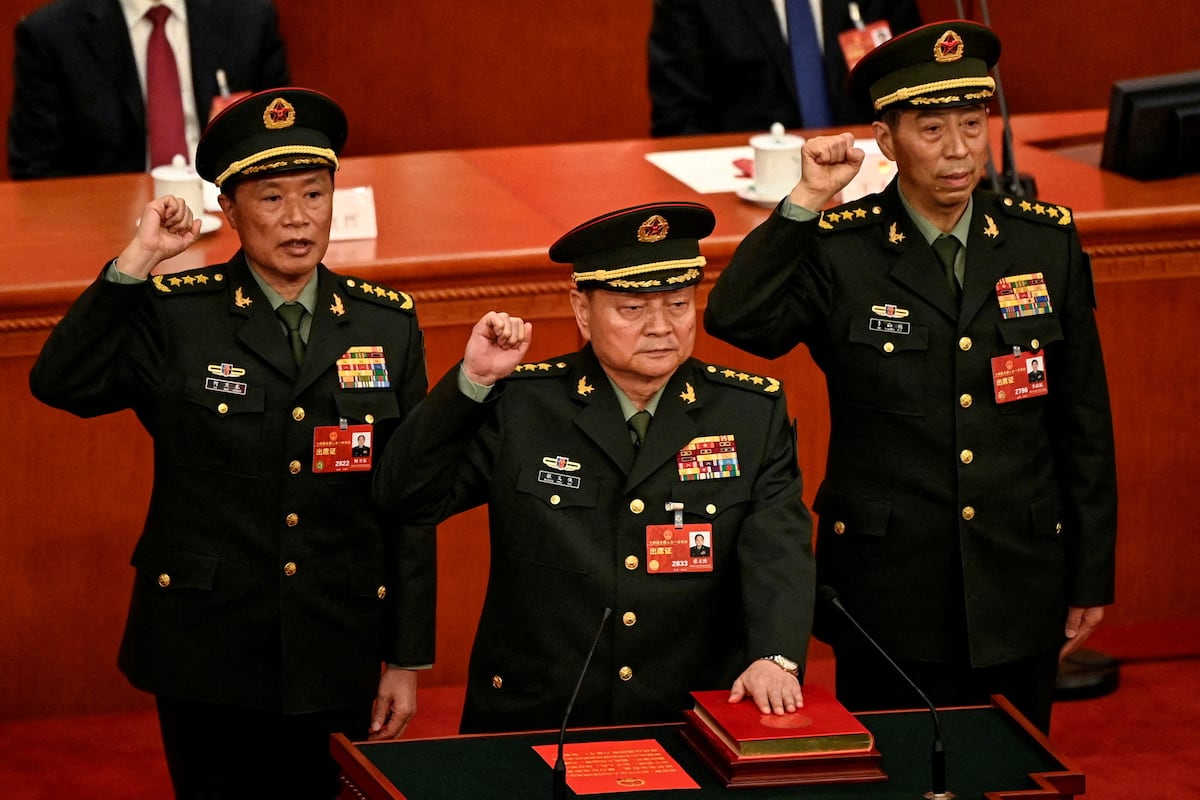China appointed Li Shangfu, a US-sanctioned general, as defense minister on Sunday in a move that perfectly reflects the turbulent state of relations between Beijing and Washington, with Moscow shadowed in the background. Lee, who is 65 years old and has a long military career linked to the Asian giant’s aerospace program, was blacklisted in the US in 2018, when he was in charge of the weapons department, for his responsibility in procuring fighters and security systems. Russian-made anti-aircraft missiles.
The appointment comes at a time when diplomatic channels between China and the United States are going through a critical period of lack of communication and mistrust due to the tension surrounding Taiwan and Washington’s recent shooting down of a Chinese balloon across the US mainland Don. permission.
Li’s election won approval by the National People’s Congress (China’s legislature) on the day the renewal of key posts for the new government was completed, after Xi Jinping was sworn in as president on Friday for a third term, and that Li Qiang, one of the president’s trusted men and second-in-command, Communist Party, he was elevated to the post of prime minister on Saturday. The parliamentary session ends, on Monday, with a speech by the Head of State, and an appearance by the Prime Minister to the media.
Dr. Lin Yingyu, an assistant professor at Tamkang University (Taiwan), who specializes in the capabilities of the Chinese military, explains that Li Shangfu’s appointment “was expected, not a coincidence.” But keep in mind that the Minister of Defense of the People’s Republic of China basically has no real power. It’s the Central Military Commission [máximo órgano castrense, cuya presidencia ha revalidado Xi Jinping esta semana] Who can lead the People’s Liberation Army.”
Sanctions against the new Minister of Defense were born from an earlier era, but the dark clouds we are witnessing today were already looming over the horizon. The Donald Trump administration has imposed them along with a raft of measures directed against Russian companies in order to “impose costs” on Moscow “in response to its interference in the United States’ electoral process, its unacceptable behavior in eastern Ukraine, and other malicious activities,” according to a State Department statement. at that time.
Beijing this week voiced a firm line of defense against mounting US pressure in areas ranging from trade sanctions to blockades in the advanced microchip sector. President Xi, who has been given little finger-pointing, on Monday decried Washington’s strategy aimed at curbing China’s rise. “Western countries, led by the United States, are carrying out complete containment and suppression of China, which is posing unprecedented challenges to our development,” he said. The new foreign minister, Chen Gang, added on Tuesday that if the US “doesn’t hit the brakes”, there is a risk of “conflict”.
Join EL PAÍS to follow all the news and read without limits.
Participate
Among the changes approved on Sunday, the ones for Ding Xuexiang, 60, as the highest ranking deputy prime minister, stand out. Deng, a member of the Standing Committee of the Politburo, the Communist Party’s highest body of authority, served as Xi’s chief of staff during his tenure as party secretary in Shanghai and is “one of his most loyal confidants,” according to the institute. Biography of the Washington-based Brookings Institution.
Living, 68, will head the National Development and Reform Commission – the body responsible for planning – the new deputy prime minister in charge of the economy of a country trying to reinvigorate confidence after the pandemic. And it faces potentially devastating geopolitical turmoil with moderate optimism: it expects it to grow by around 5% in 2023, according to projections set by the government last week. Yi Gang, 65, will repeat the post of governor of the People’s Bank of China (the central bank), just like Finance Minister Liu Kun, 66, a gesture with which Beijing appears to want to send a message of stability and credibility.
Follow all international information on Facebook And Twitteror in Weekly newsletter.





/thumbs.vodgc.net/1-14-S15FuR1714053755879_480P.jpg)